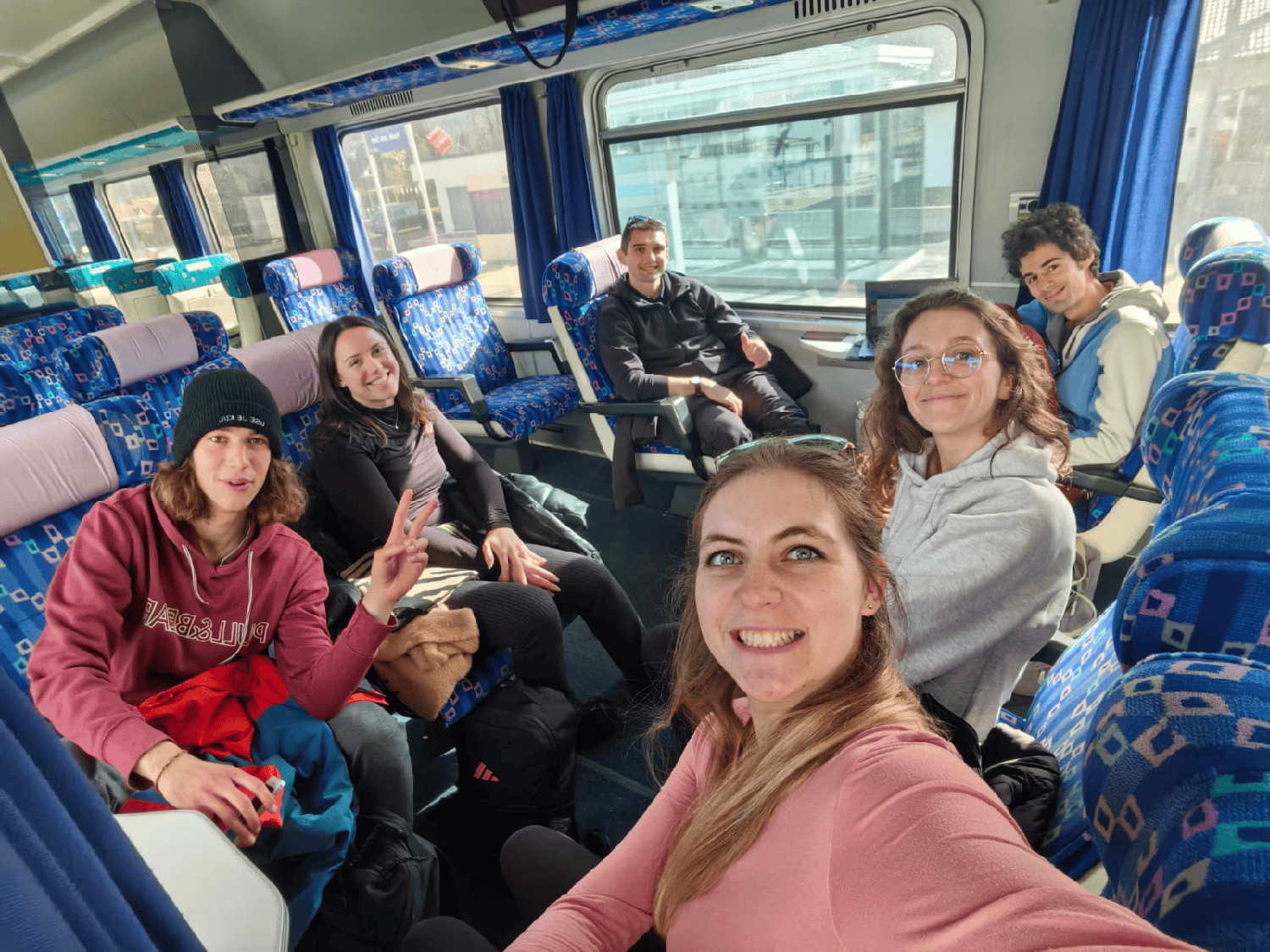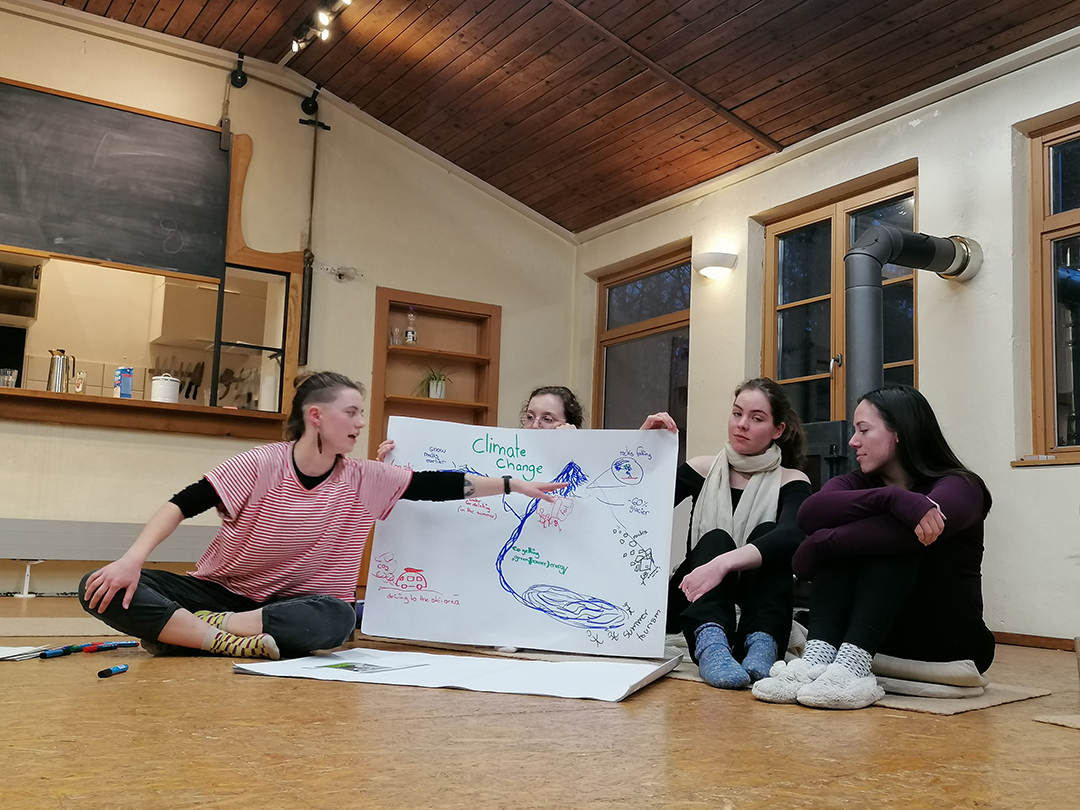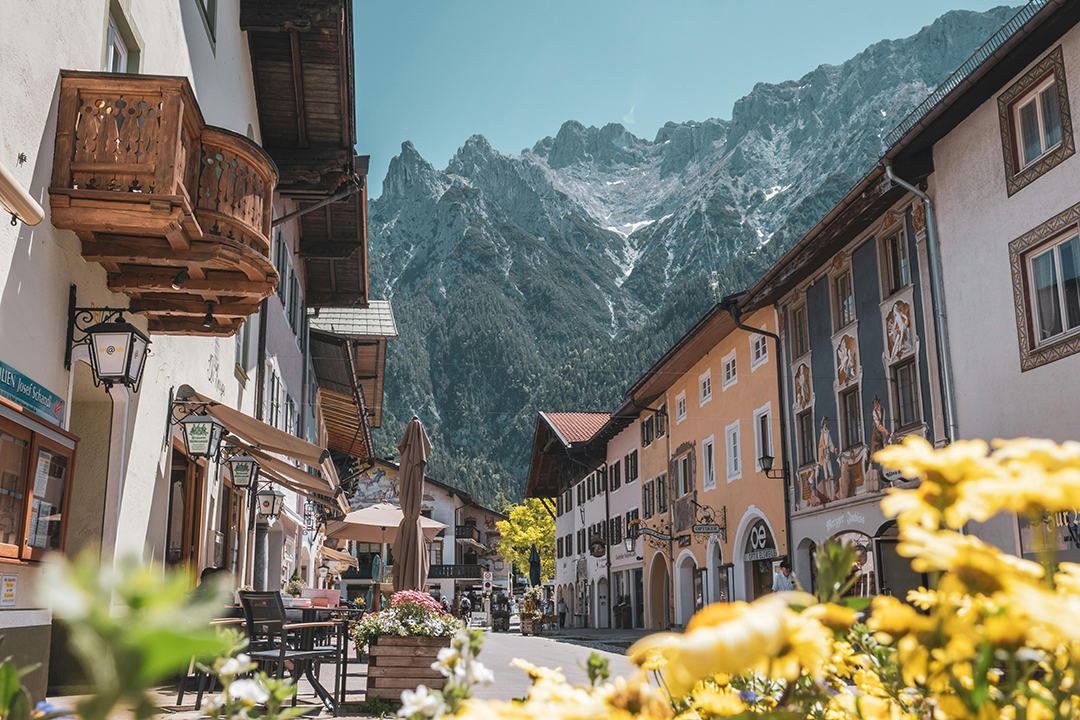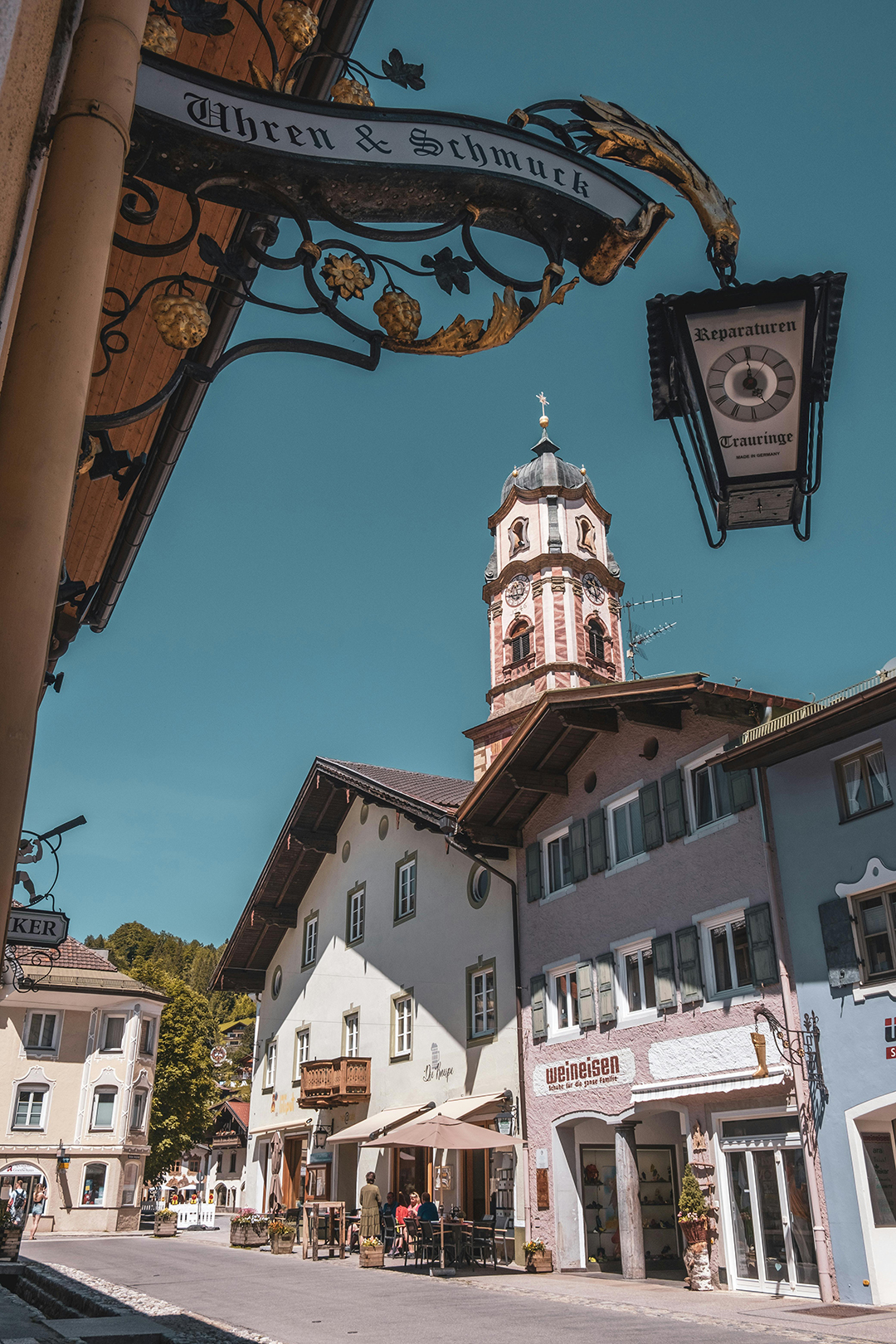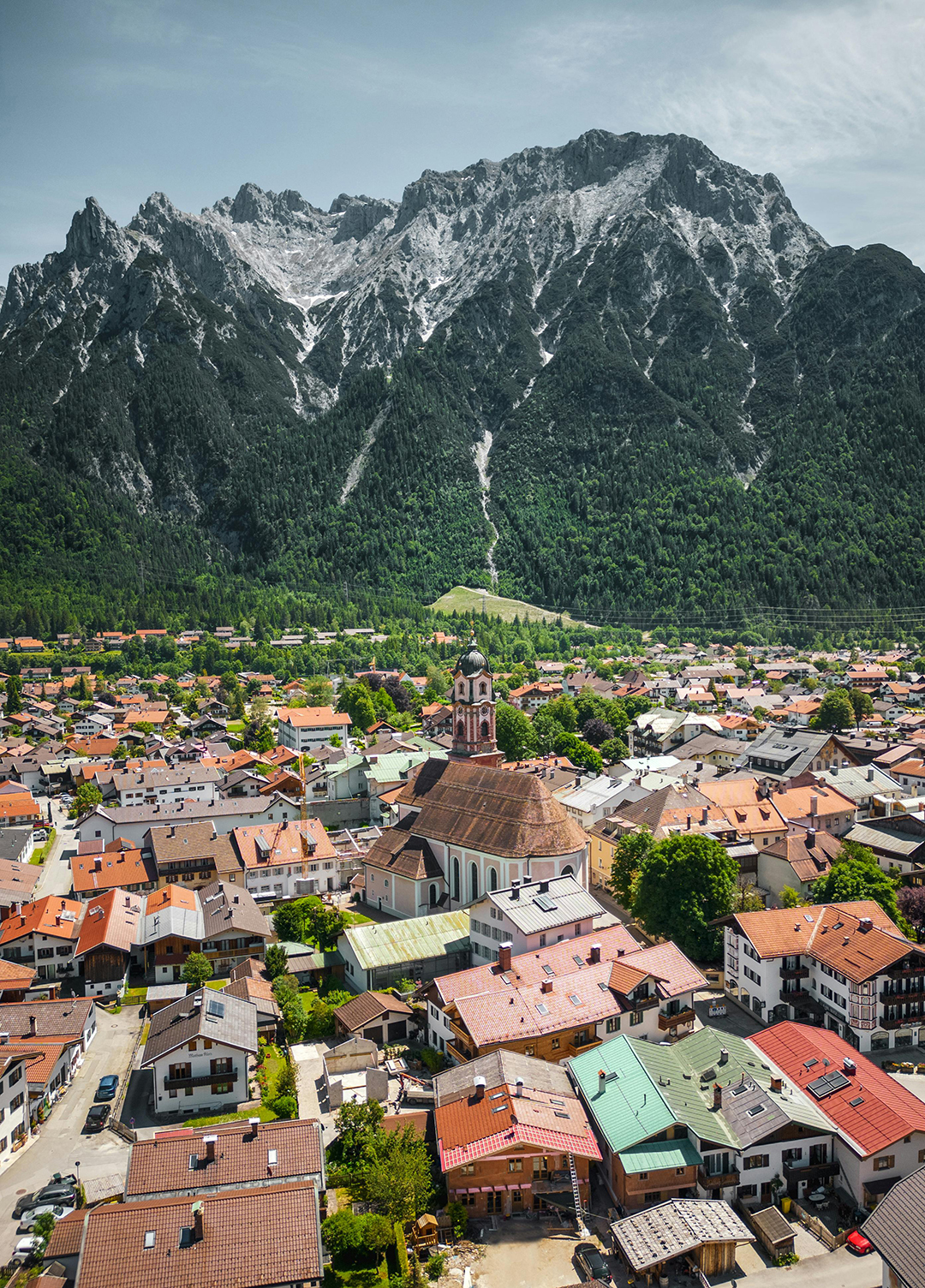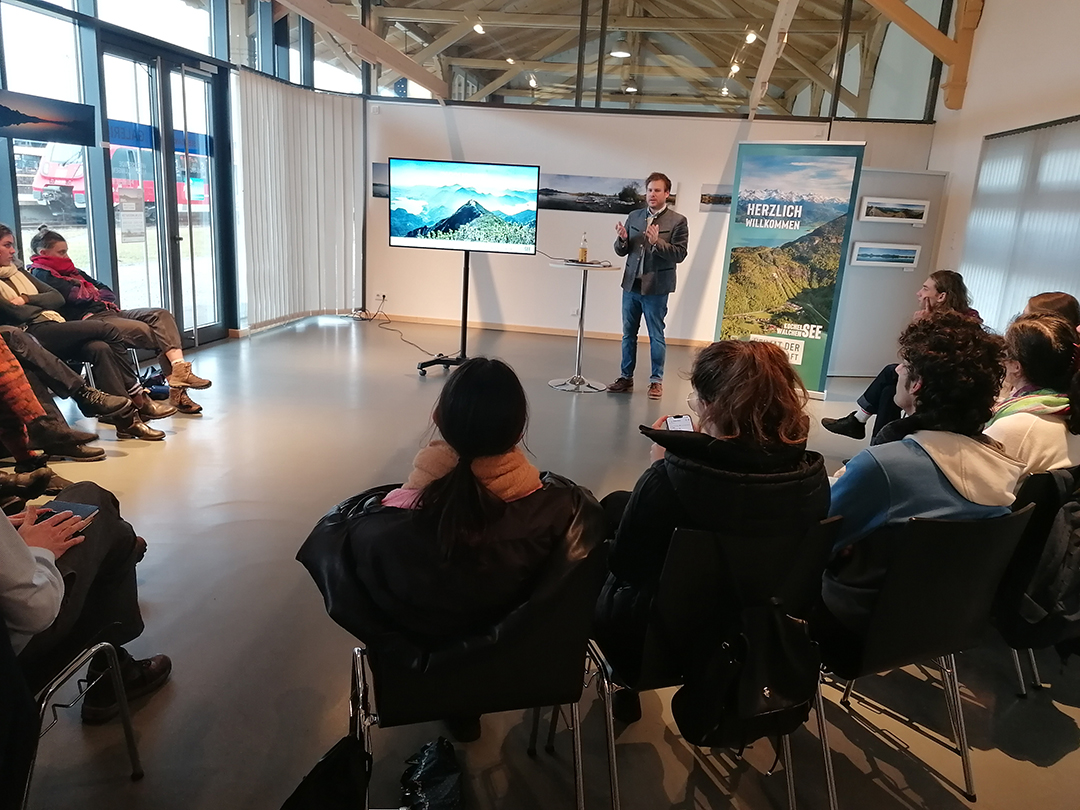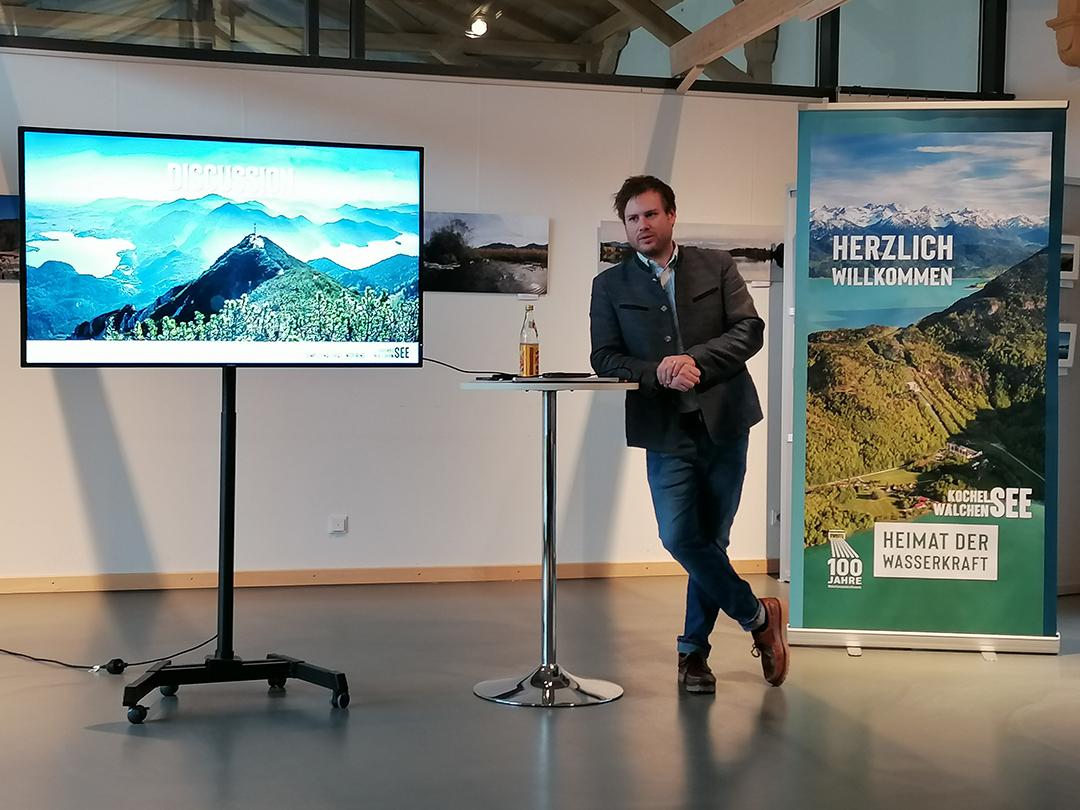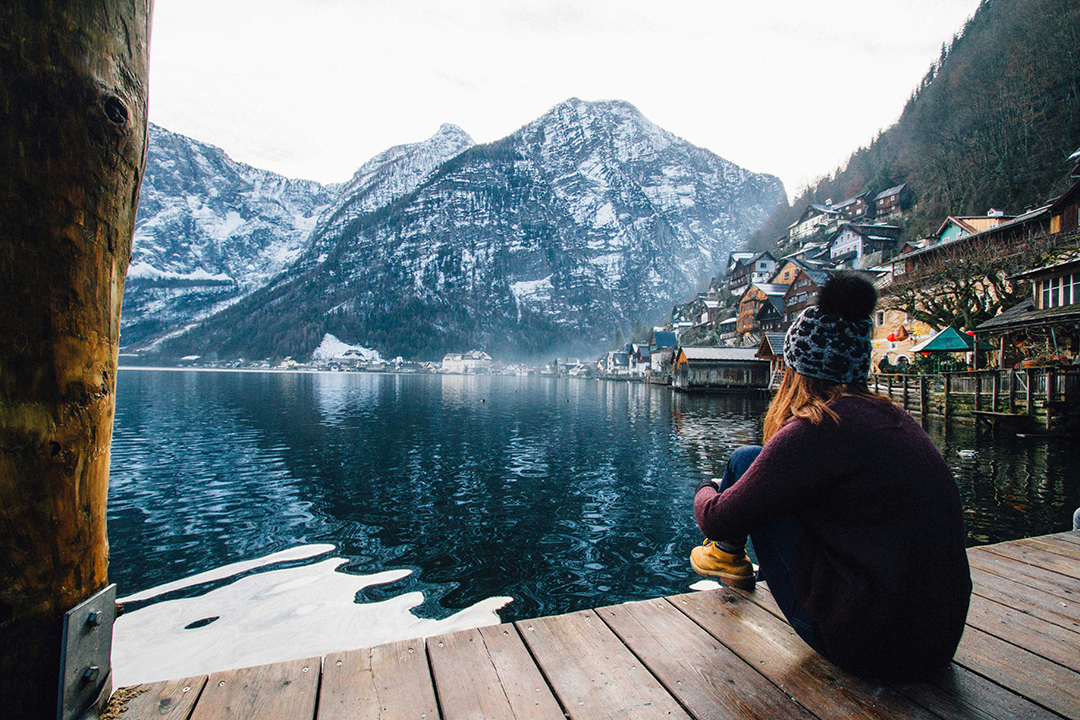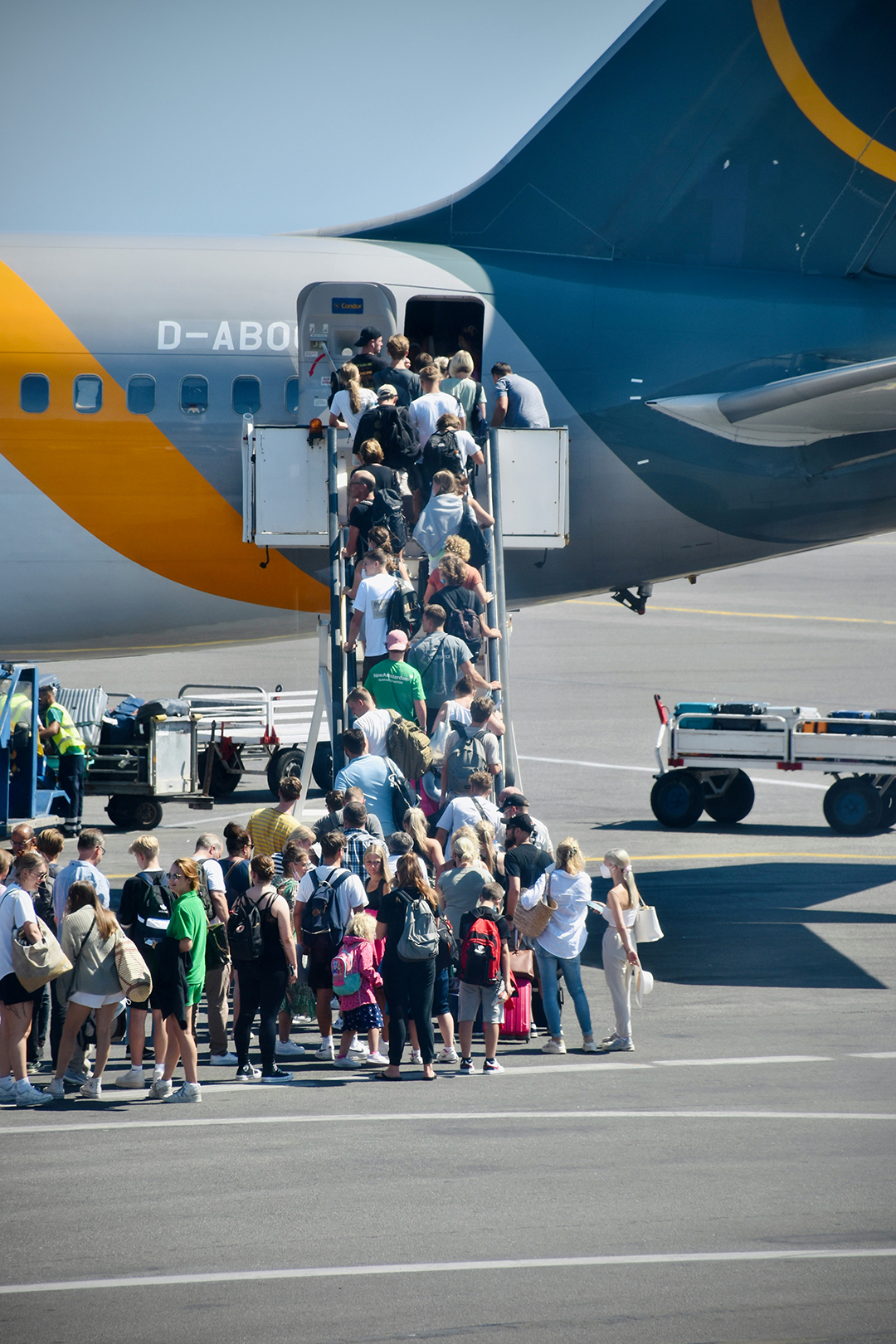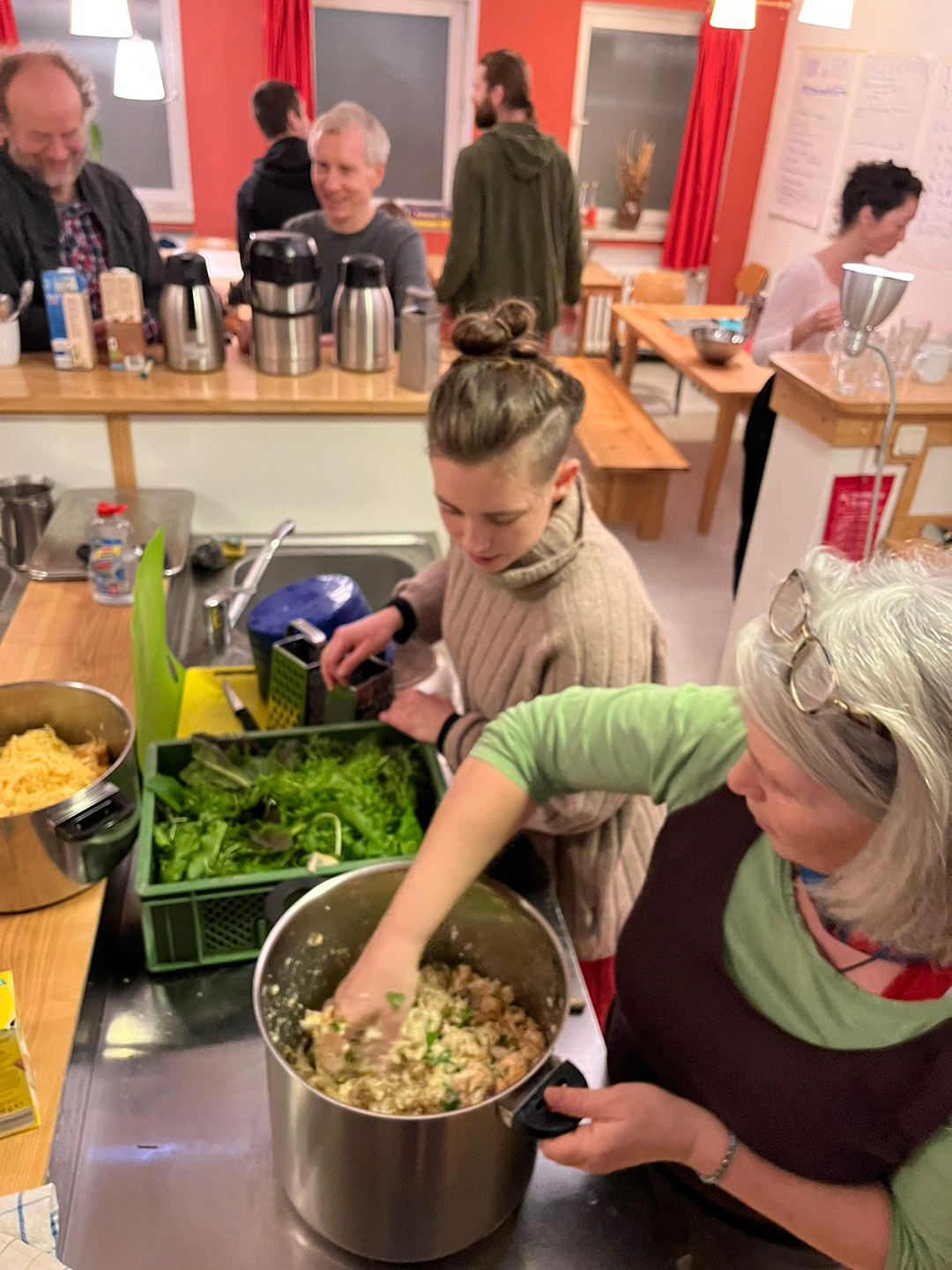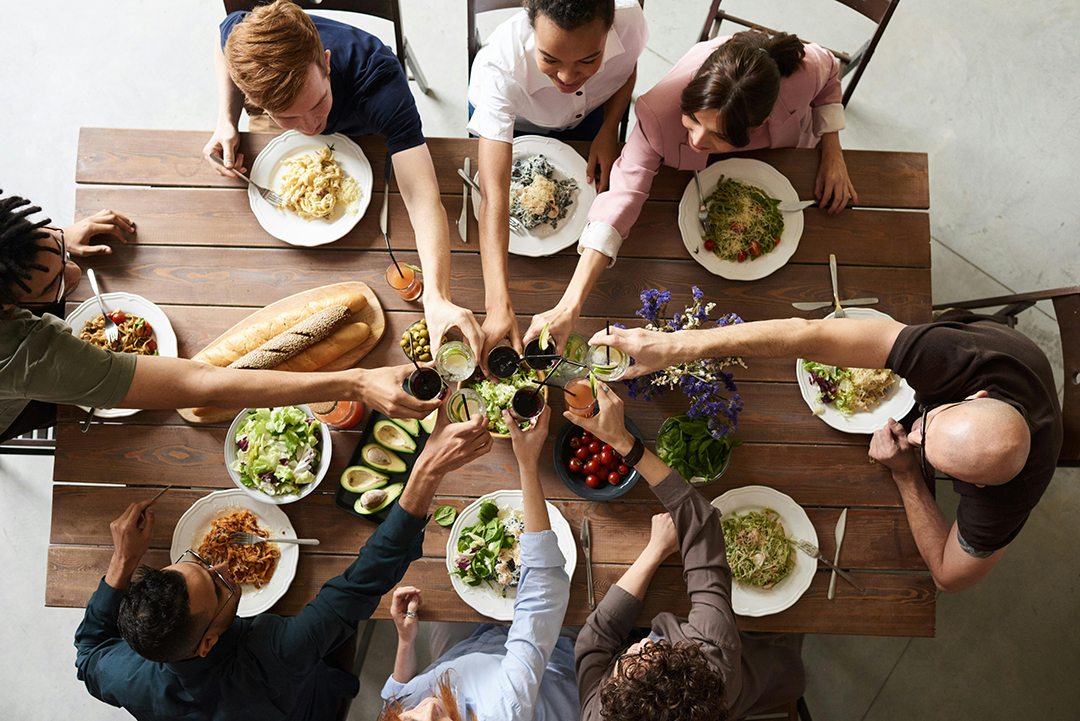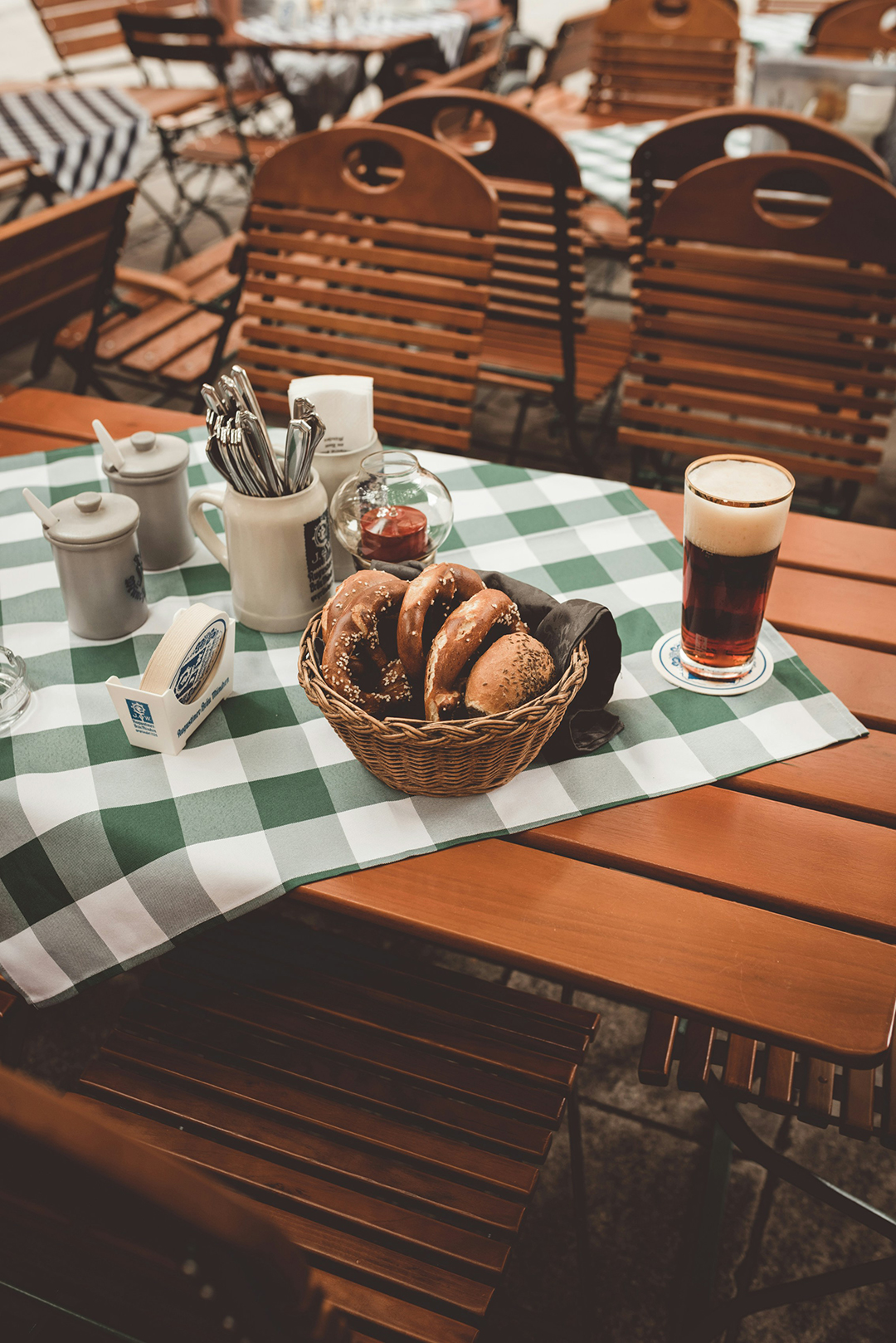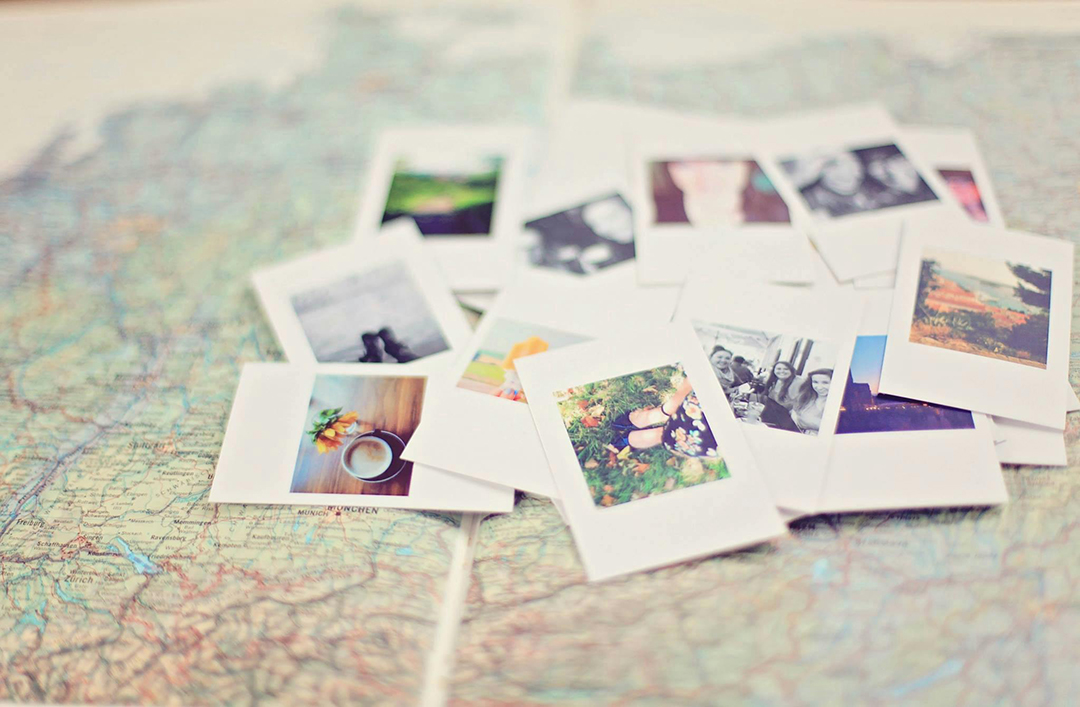Innovative Peer-to-Peer Education
Promoting a different way of travelling
Inspired by this motto, young people from Slovenia and Germany met in Bavaria during the winter of 2024 for a youth exchange. With a view of the Alps in Schlehdorf, they explored different aspects of tourism and discussed topics related to sustainability, but also how travelling can help break down prejudices, enable people to get to know other cultures, and in this way contribute to a more tolerant world.
Achim Riemann
Yes, travelling can help reduce prejudices, but not automatically. It depends a lot on how you travel, what you experience, and how open you are. Being prepared, knowing something about the country and its history, and being able to speak a few words in the local language also have a big impact.
The seminar was held within the framework of the ‘Travel Different for Future’ project, in which Slovenian and German volunteers have already conducted several workshops to inspire other young people to travel more sustainably and with greater cultural sensitivity. This was already the third youth exchange made possible through funding from the European Union.
Sounds interesting? If so, we would be excited if you continued reading. We have written down some of the most memorable experiences from the youth exchange to share with you. And we would be even happier if you would like to get involved in our project. Once a month, we meet online, and soon we will also be joined by our new partners from Spain and Portugal. At least once a year, we meet in person, and we are already planning additional meetings in the future. In the summer of 2024, we will meet in Germany, in 2025 in Portugal, in 2026 in Spain and in 2027 in Slovenia.
‘Those who wish to travel must first have a love for the country and its people, or at least no preconceptions. They must have the goodwill to find the good, rather than killing it through comparison.’
–Theodor Fontane
Guided tour through the picturesque Mittenwald
An elderly man dressed in traditional clothing was delighted that we spoke English and could translate well. ‘Translations are always a bit tricky,‘ he said. For an hour and a half, we walked through the charming town of Mittenwald. In total, our tour covered only about 800 metres. We hadn’t gone far, but Mittenwald isn’t a big place, at least not the historic centre of this tourist hotspot at the foot of the Alps. The 800-metre route is steeped in history. It’s about war and peace, the old days that weren’t just good, or at least certainly not easy. It’s also about religion and the making of violins. Mittenwald is famous for its violin making, and our tour guide was visibly proud of that.
What makes Mittenwald particularly interesting are the old painted houses. We stopped in front of a few of them to learn about the symbolism behind what we saw. This folk art was inspired by the Baroque style and imitates architectural elements to make the houses look more prosperous. The paintings show things like mirrors, stucco elements, sundials, fields, biblical scenes, rural everyday life and hunting. There are also sayings painted on the walls.
At the end, our tour guide took time to answer our questions, which were not directly related to Mittenwald, but rather to his experiences with the groups he guides. To summarise, it is sad to say that very few people who come to Mittenwald take part in the guided tour. And even fewer want to learn anything about the town and its history. In his experience, interest tends to fade after 30 minutes, and only a few questions are asked. Many of the tours are for groups from Asia, who tend to visit Mittenwald in an organised manner. He feels that their translators often have difficulty translating what is said. ‘Consequently, a lot gets lost,‘ said the tour guide. But they appreciate touring with a true local, and many of them take a selfie with him at the end.
‘Wherever strangers are rare, they are warmly welcomed.’
–Jean-Jacques Rousseau
Tourism in Mittenwald, without a large hotel and eventually without snow
The local council was almost unanimous in its support for the construction of a big hotel on a large, centrally located piece of fallow land. The investor and operator were to be a large hotel chain with a planned investment of around 50 million euros. A local referendum was held, and 57% voted against the project, which consequently failed. The argument was that the hotel would give the picturesque town an overly urban character. Whereas competition for other accommodations was not an issue, since Mittenwald lacks guest beds anyway. One of the representatives from the Mittenwald Tourist Information Office familiarised us with the story.
We then discussed the pros and cons of such a project. It was an exciting insight into the challenges of tourism development, addressing issues such as identity, authenticity, competition, accommodation prices, an oversupply of beds, and a shortage of guests. Another important topic of discussion was the question of what type of travellers suit Mittenwald and which they would like to attract. In addition, we discussed how Mittenwald aims to be an attractive travel destination throughout the year, especially considering that winter sports will likely cease to be possible in a few years. This also involved the term ‘snow reliability’. As the representative stated: ‘When I book my January winter holiday in April, I want to be relatively certain that there will be snow at that time.‘
‘The tourist destroys what he is looking for by finding it.’
–Hans Magnus Enzensberger
Compost toilets and bus drivers from Pakistan
The tourist information office is located inside the train station of Kochel. It is a useful service for those who don’t arrive by car. However, those are the minority. More on that later.
We were welcomed by the tourism manager, a young man who grew up in the region. He was wearing a traditional jacket and seemed very motivated. We could tell that he was happy to answer our critical questions, and we didn’t doubt that the issue of sustainability was important to him. He has big plans and would like to do even more. However, the whole community needs to be involved — local politicians, residents, and, of course, the tourism industry. The people he works with aren’t particularly keen on experimenting, though. And then there’s the matter of responsibilities. A major annoyance is the thoroughfare, which is often congested with cars, robbing Kochel of its charm. He would love to tackle this issue, but the thoroughfare is not a municipal matter, and the municipality’s hands are tied. Moreover, our interviewee was rather pessimistic about getting people to leave their cars at home and travel by train instead.
He considers the train connection from Munich to Kochel to be good, but nevertheless, Munich residents primarily opt to drive their often large cars, congesting Kochel and then the surrounding car parks. Speaking of the car parks, the chemical toilets located there are a nightmare for the tourism manager. He spent a long time researching more environmentally friendly and affordable alternatives and became enthusiastic about composting toilets. Politicians agreed, but he simply couldn’t find a company that would take on the task of cleaning the toilets.
An example from a neighbouring district shows how such efforts can fail. The district wanted to deploy more buses so that people would use public transportation instead of their own cars to travel the last few kilometres to the Alpsee, which might even be closed for car traffic. The problem is that there are not enough bus drivers. Currently, efforts are being made to recruit drivers from Pakistan. Sometimes it is not a lack of willingness to make sustainable changes.
An important concern for our conversation partner was the ‘social media hype’ and how much damage it does to nature, as the perfect selfie is often taken in places where it is not allowed to because of nature conservation or safety reasons. Barriers and prohibitions are often ignored, and as a result, nature suffers – a terrible development, according to our expert from Kochel.
Nature tourism – tourism in and with nature
How important is beautiful nature for tourism? For many, beautiful nature is a reason for choosing a travel destination. But why does it have to be spectacular and special? Why travel to Canada out of love for nature when untouched nature can also be found in Norway, and you can do it in a far more environmentally friendly way?
Nature plays a central role in tourism – both as a travel destination and as a place to experience a wide variety of activities. Mountains, lakes, seas, forests and deserts attract millions of travellers. Places like the Grand Canyon, the Alps, or the Northern Lights are global magnets that people travel far to see and are willing to spend a lot of money and cause high emissions to visit.
Nature promises fresh air, peace, tranquillity and exercise in the great outdoors – something that sounds like relaxation. Terms such as wellness, forest bathing, and gentle tourism are closely associated with it. But then there are activities where nature serves as more than just a background. It is not uncommon for nature to be damaged by activities such as skiing, climbing, or surfing. Nature serves as a ‘sports field’ for outdoor activities. A good example is diving, which usually disturbs and interferes with nature. And what is even sadder is that people only come to dive if there is something to see underwater. So, how to protect the marine world as an investment in the future? The same question applies to safaris.
In many rural regions, nature is the economic driver of tourism, for example, in the Alps, Scandinavia, or on tropical islands. Nature-based tourism creates jobs and income for local people, who then no longer need to earn money by exploiting natural resources, such as through deforestation, which would also eventually make the region unattractive to tourists. However, nature should not be merely a background but should be at the heart of the tourist experience. Its sustainable use and protection are essential to maintaining its long-term role in tourism. This then raises the question of how many visitors nature can tolerate.
Furthermore, a genuine nature experience is only possible if it is not too crowded. Nature-friendly accommodation, environmentally friendly travel and mobility (for example, travelling by train instead of by plane), visitor guidance through hiking trails and information boards, visitor limits in national parks, entrance fees that fund nature conservation, and environmental education for tourists are all examples of potential approaches.
‘Fools go to museums in foreign countries; wise people go to taverns.’
–Erich Kästner
Identity and nutrition
During our seminar, we explored to what extent food can be part of intercultural learning and how much what we eat or drink shapes our identity. A traditional Bavarian cooking workshop provided a good starting point to address the topic. We discussed what makes food traditional and when it becomes traditional. How long does something need to be eaten or drunk for it to be considered traditional? Is it potatoes, a crop that originated in South America but is now an integral part of both German and Slovenian cuisine? Is it beer, originally from what is now Iraq, without which it would be hard to imagine a folk festival in different parts of the world? These are complicated but also interesting questions. And if we are not so strict about it, there are certainly foods and drinks we can confidently consider traditional that are eaten and drunk at certain times of the year or on special occasions. A recurring question—What do you eat for Christmas?—raises broader societal issues. Are there foods for certain religious occasions? Who still fasts before Easter? And so on.
The discussion then goes on to table manners and the social significance of eating together. Examples include coffee and cake on Sundays with the grandparents, or barbecues with friends. Do we pray before eating, do we start and finish together? Is dinner the time we talk about our day, or do we watch TV while eating? Do we still produce our own food? Do we get apples from our grandparents in the village or from New Zealand via the supermarket? Does the food arrive in the kitchen half-prepared, or do we still cook it ourselves? And if so, who cooks?
On an all-inclusive holiday, this remains largely unknown. Big holiday resorts usually cater to what their guests like to eat. During two weeks in Spain, you might never see the inside of a kitchen or learn what the locals have for breakfast. Visiting a local bakery or grocery store offers insights and gives travellers a great opportunity to consider questions such as: How many types of bread are available? Does seafood play a role? Is there more beer or wine to buy? It can become an extremely exciting topic for the travellers, and they can learn so much. Not to mention when we delve into the topic of sustainability.
The topic stuck with us, so we decided to organise an international youth exchange on the topic of ‘Nutrition - Tradition - Society - Sustainability‘ together with our new partner organisations. Young people from Slovenia, Germany, Spain, and Portugal would then come together to cook, eat, exchange ideas, learn more, and broaden their horizons.
‘Travel is fatal to prejudice, bigotry, and narrow-mindedness.’
–Mark Twain
Is there such a thing as ‘typically German’?
Here are some frequently mentioned characteristics that are attributed to Germany or Germans at home and abroad: punctuality, order and structure, directness, diligence and a strong sense of duty. There’s also club life, beer and sausages, traditions, holidays, poets and thinkers. But be careful with stereotypes! Not all Germans are punctual, tidy or beer drinkers – those are generalised images. Many things that are considered ‘typically German’ also exist in other countries.
Furthermore, Germany is a diverse country with regional, social, and cultural differences, for example, between Bavaria and Berlin or between urban and rural areas. Expression often helps with intercultural understanding because it shows how people from other countries perceive Germany. To say someone or something is ‘typically German’ is not a law of nature, but a socially constructed picture that is subject to change as seen through migration, globalisation or generational changes. It only exists as a cliché, but the reality is far more nuanced. Anyone who truly wants to get to know Germany should look beyond the clichés into the regions, languages, lifestyles and stories of the people.
Conclusion
Yes, travelling can help reduce prejudices, but not automatically. It depends a lot on how you travel, what you experience, and how open you are. Being prepared, knowing something about the country and its history, and being able to speak a few words in the local language also have a big impact.
Being in direct contact with people helps you reflect on stereotypes and replace them with real experiences. Broadening your horizons doesn’t happen in a large hotel complex and rarely in a tourist hotspot where people are annoyed by the many tourists because they are constantly everywhere and oftentimes loud. As a result, prices rise, and one’s favourite local coffee shop disappears.
If you want to get to know the country and its people, you should consider travelling away from the major tourist attractions. Different cultures, languages, traditions, and mentalities help you learn that there are many ‘normalities’. But you also recognise similarities and develop empathy for other realities of life. At the same time, we often learn more about ourselves than about others when travelling and having authentic interactions. Suddenly, you realise that your own way of life and your own views are not the norm and are a great opportunity to question them.
‘Where would we end up if everyone said, ‘Where would we end up?’ and no one went to see where one would end up if they went?’
–Kurt Marti

